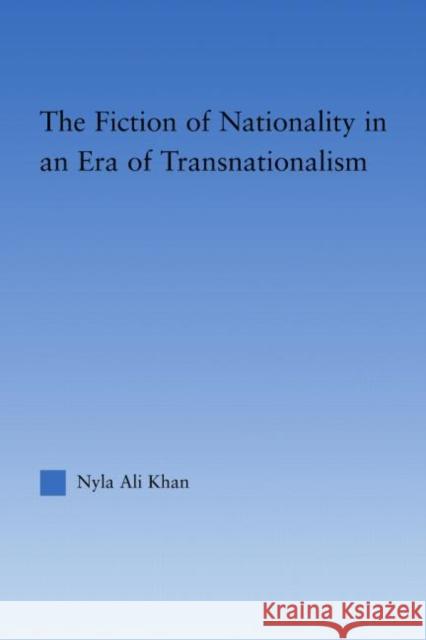The Fiction of Nationality in an Era of Transnationalism » książka
The Fiction of Nationality in an Era of Transnationalism
ISBN-13: 9780415975216 / Angielski / Twarda / 2005 / 144 str.
The Fiction of Nationality in an Era of Transnationalism
ISBN-13: 9780415975216 / Angielski / Twarda / 2005 / 144 str.
(netto: 673,60 VAT: 5%)
Najniższa cena z 30 dni: 654,86
ok. 22 dni roboczych.
Darmowa dostawa!
In this study, Nyla Ali Khan focuses on the representation of South Asian life in works by four contemporary Anglophone writers: V. S. Naipaul, Salman Rushdie, Amitav Ghosh, and Anita Desai. Concentrating on the intertwined topics of nationalism, transnationalism, and fundamentalism, Khan offers a critical dialogue between these works and the contemporary history they encounter, using history to interrogate fiction and using fiction to think through historical issues. In doing so, Khan argues that in the mixed, heterogeneous space of transnationalism, cultural and linguistic authenticity is a pipe dream. The binary structures created by the colonial encounter undergo a process of dialectical interplay in which each culture or language makes incursions into the other. Some of these structures are as follows: black-white, primitive-savage, self-other, silent-articulate, rational ruler and irrational ruled. These categories generate a dichotomy that creates the perception that a people have of themselves and their political and social relationships. Their recognition of this dialogic interplay of community and place becomes the basis for strategies that enable transnational and postcolonial writers to revise dogmatic categories. Despite all their differences, the works of these authors delineate the asymmetrical relations of colonialism and the aftermath of this phenomenon as it is manifested across the globe in this day and age. Khan shows, for instance, how Naipaul articulates a sensibility created by multilayered identities and the remapping of old imperial landscapes, in the process suggesting a new dynamic of power relations in which politics and selfhood, empire and psychology, prove to be profoundly interrelated; how Rushdie encourages a nationalist self-imagining and a rewriting of history that incorporates significant cultural, religious, and linguistic differences into our sense of identity; how Ghosh is critical of the putative cultural and religious necessity to forge a unified nationalist identity, arguing that no single theory sufficiently frames the multiple inheritances of present diasporic subjectivities; and how Desai seeks to imagine a responsible form of artistic, social, and political agency.











